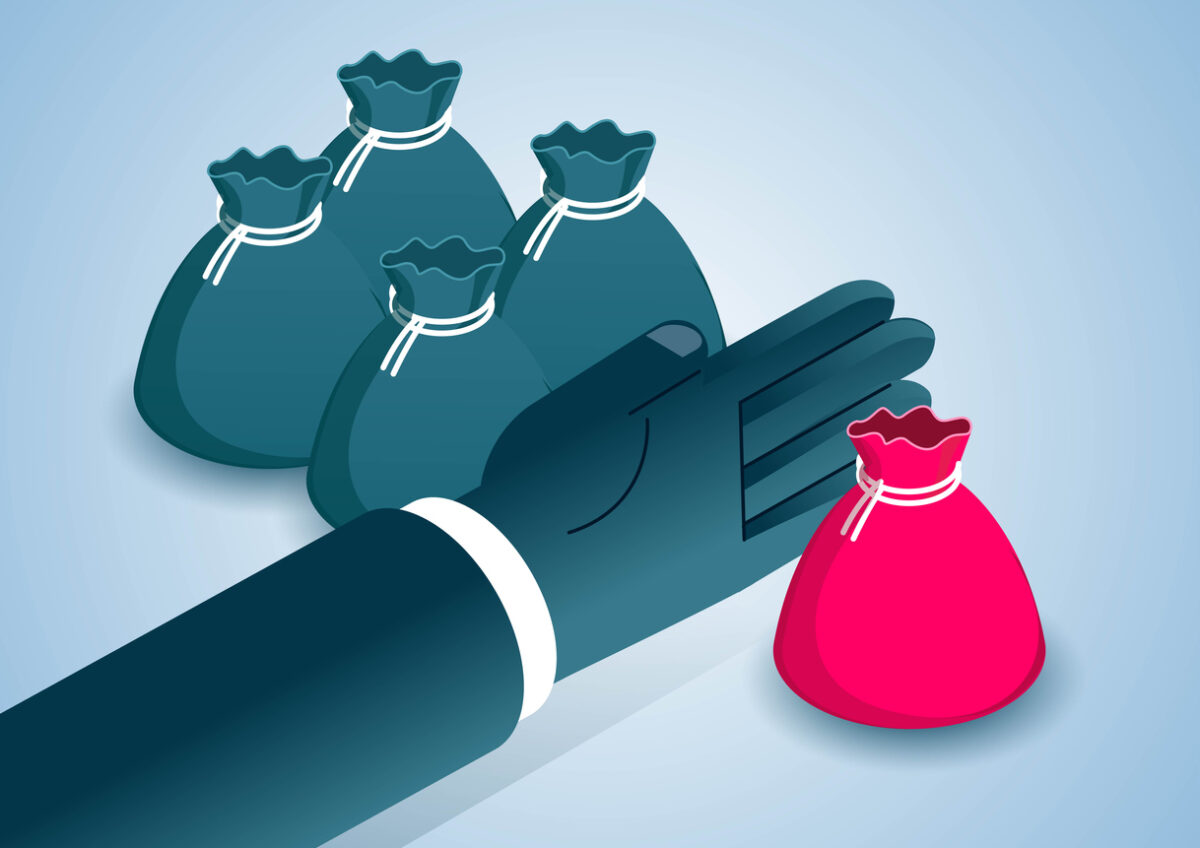For small business owners, maintaining a clear distinction between personal and business finances can be quite challenging. However, failing to separate the two can lead to various difficulties for your business, and may even result in legal consequences. By separating personal and business expenses, you can greatly simplify your life, saving both time and money.
Here’s a guide on how to effectively achieve this separation.
Personal Vs. Business Expenses
Before delving into the topic of distinguishing personal and business expenses, it is crucial to understand the definitions involved.
According to the IRS, business owners are eligible to claim tax deductions on their business expenses. These expenses are categorized as both “ordinary” and “necessary.”
An ordinary expense refers to those that are commonly incurred and accepted within your specific trade or business. On the other hand, a necessary expense implies that it is advantageous and suitable for your trade or business. It’s important to note that an expense doesn’t have to be indispensable to be classified as necessary.
Business expenses encompass the actual costs associated with the operation and maintenance of your business. However, similar to other accounting terms, there may exist certain areas of ambiguity. For instance, if you conduct your business from your residence, a portion of your home-related expenses, such as mortgage or utilities, could potentially be considered as business expenses. Nevertheless, it is advisable to establish a clear demarcation between personal and business expenses.
The Importance of Separation
Combining your finances can result in tax and legal complications. For instance, if your business becomes the subject of a lawsuit, your personal assets may be at risk if there is no clear distinction between the two. Separating personal and business expenses is a prudent practice that can save you from the headache of an IRS audit.
The IRS allows businesses to deduct legitimate business expenses, such as supplies and travel, from their taxes. However, it is crucial to maintain proper records for the IRS to verify these expenses. Without a clear separation between personal and business expenses, this task can become challenging.
Moreover, falsely claiming personal expenses as business expenses can lead to back taxes, interest claims, and tax penalties. It is important to exercise caution and ensure accurate reporting to avoid such complications.
Steps for Separating Personal and Business Expenses
Fortunately, small business owners who have not yet separated their expenses can easily do so by following a few straightforward steps.
- Register Your Business
The initial step in establishing a distinction between yourself and your business is to formally register your business. There are various business structures available, such as Limited Liability Companies (LLCs) and Corporations. It is crucial to make a thoughtful decision when selecting a business structure, as it impacts your capacity to raise capital, the amount of taxes you will pay, and the level of personal liability you may bear. By transforming your business into a C corporation, S corporation, or LLC, you grant it a distinct legal identity, effectively separating it from other shareholders.
Incorporation provides the most robust protections to business owners against personal liability, enhances the credibility of the business, and facilitates easier access to capital. However, it is important to note that incorporation entails higher costs compared to other business structures, potentially resulting in increased tax obligations, additional administrative duties, and more stringent record-keeping requirements.
Conduct thorough research on various business structures prior to registration. The U.S. Small Business Administration offers a comprehensive guide on launching your business.
- Get an Employee Identification Number (EIN).
An EIN, similar to a social security number but for businesses, is a crucial requirement. Obtaining an EIN should be a top priority as it allows you to separate your personal social security number from your business affairs and documentation. It is a unique nine-digit number assigned by the IRS, serving as an identifier for your operating entity.
This number enables you to conduct tax-related business and establish a dedicated bank account for your business. An EIN proves invaluable in segregating your business assets from your personal ones, while also providing an additional layer of protection against identity theft.
Applying for an EIN is completely free and takes only a matter of minutes. The application process can be completed conveniently on the IRS website.
- Open a Business Bank Account
To effectively manage your personal and business expenses, it is recommended to separate them into dedicated bank accounts. Once you have obtained an EIN, you can open a checking and savings account in the name of your business. Many banks require an EIN for business account setup. By conducting all your business transactions through these accounts, you ensure transparency in your financial activities.
Having a business checking account offers several benefits. It promotes better organization of financial records, simplifies tax filing, and allows you to gauge your business’s profitability. With separate accounts, you can maintain a clear distinction between personal and business finances, contributing to smoother financial management.
- Apply for a Business Credit Card
Like maintaining a separate checking account for your business, utilizing a business credit card serves the purpose of clearly distinguishing between business and personal expenses. By doing so, you can avoid the risk of mingling personal and business expenditures on a personal credit card. It’s important to note that personal credit cards generally have lower credit limits than business credit cards, and relying heavily on your personal card for business expenses can quickly lead to credit limit constraints. Accumulating excessive charges on personal credit cards may result in a rapid decline in your credit scores. Furthermore, any issues affecting your business could potentially impact your personal credit reports, making it more challenging to secure funding for significant purchases like a home or a car.
Business credit cards not only facilitate the separation of personal and business expenses, but they also offer a range of additional advantages. They contribute to the establishment of a solid business credit history and provide rewards for business-related expenditures. Additionally, they often come with benefits such as merchandise discounts.
It’s crucial to recognize that, much like personal credit cards, business credit cards are powerful financial tools. To fully leverage their benefits, it is essential to use them responsibly and make well-informed decisions.
- Use Payment and Accounting Software
With accounting software, you can easily track your business income and expenses, monitor financial transactions, and generate statements. These functions are essential for staying organized and up to date. For instance, QuickBooks Online is a top-notch accounting software that simplifies the classification of personal and business expenses, without any unnecessary hassle.
For smaller businesses that may not be financially prepared for robust accounting software, options like PaySimple offer a convenient solution for classifying business revenue. All transactions are meticulously tracked, documented, and readily available through comprehensive reports. While it may not serve as a complete accounting software, it still assists with crucial tasks such as documenting expenses and recording incoming revenue.
By integrating your accounting and payment software, all payments can be seamlessly processed directly into your designated accounts within the accounting software. This integration enables effortless reporting on your business’s finances, saving you valuable time in the long run.
Having a designated area to review all transactions is paramount, especially during tax season.
Start Now
If you haven’t started organizing your finances yet don’t worry, it’s not too late!
By implementing these essential steps to separate personal and business expenses, you may need to invest some time initially. However, the long-term benefits will far outweigh the effort, saving you both precious time and hard-earned money. So, take control of your financial future and set your business up for success!


